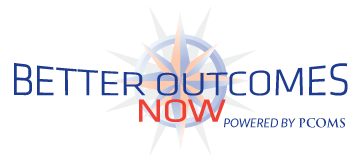July 23, 2019 08:39 AM
Let’s face it, most of us didn’t become therapists so that we could appear on the show Lifestyles of the Rich and Famous. While sailing the Caribbean on a yacht while eating delicate hors d’oeuvres sounds appetizing, many of us entered the field for other reasons. And now we know what those reasons are.

David Orlinsky of the University of Chicago and Michael Helge Rønnestad of the University of Oslo conducted a longitudinal study involving 11,000 therapists from various countries. They found that therapists stay in practice not because of material rewards, but because they value connecting with clients and helping them improve. Those interviewed also mentioned a strong desire to continue to learn and grow in their profession. In fact, therapist professional development was also cited as an important buffer against burnout.
Both client and professional growth can only be ascertained through outcomes. In other professions, this is easier to do. Once a house is painted or a driveway is paved, we know we’ve achieved the desired outcome. But how do we do this with clients? How do we really know we’re helping?
A routine outcome monitoring program, one that involves a quantitative standard as a reference point, is needed for outcome measurement. Outcome tracking provides information beyond mere intuition and subjective impressions to quantifiable feedback. Unambiguous data can tell us if our clients are benefiting or floundering, as well as whether our services are a good fit.
Tracking outcomes also helps to determine our own experienced growth. It helps us to continually assess our development, challenge our assumptions, adjust to client preferences, and master new tools.
Although there are various methods to measure therapy outcomes, an easy, quick, and practical way to do it is by using the Partners for Change Outcome Management System (PCOMS) web application, Better Outcomes Now. BON partners with consumers to identify those who aren’t responding and addresses the lack of progress in a proactive way that keeps clients engaged while providers collaboratively seek new directions. Learn more about the science behind PCOMS and BON now.






.png)


.png)